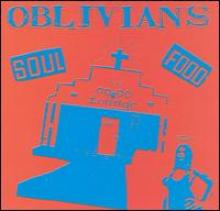For whatever reason, Memphis has long been a weird conglomeration of music styles, labels, recording studios and Southern misfits. Cobbled together from the Compulsive Gamblers and a stray record store clerk, the Oblivians counted as one of the innumerable bands combining garage and punk stuffs during the early nineties in contrast to all the Seattle styled stuff that was going on.
The Gories, of course, had roughly worked out the formula a few years back, but the Oblivians functioned as a more popular arm of the scummy garage underbelly. With that said, Eric Friedl’s Goner Records could be thought to surpass his own band’s influence. Still functioning today, the label issues albums by folks touted as the new-wave of garage retreads. Even beyond that, Friedl functioned as an in for the late Jay Reatard, exposing the younger musician to Memphis’ expansive music scene.
Despite having broken up more than a decade ago – the Oblivians did get it back together for a tour last year – the band is still perceived to be a landmark of the genre, pushing the trio towards the end of the nineties when there’d be an above ground resurgence in garage styles, commercial and otherwise.
Recorded in 1995, Soul Food, the band’s first album, could be figured as an extension of the aforementioned Gories. The thing is, that for as nasty as that Detroit combo was – and still is during its reunion shows – the Oblivians are equally obnoxious and worked to include some lyrical stuff that would probably make your grandmother wince.
Soul Food’s track list doesn’t completely concern itself with women, the awful things they do and the worse stuff men do to them, but that’s a huge part of it. “And Then I Fucked Her,” the album’s second track, details the meaninglessness of coitus in a scene comprised of a revolving door of people. The weird thing is that the fifteen year old song won’t ever stop being applicable. Furthering that, the Oblivians music, already based on established forms, works at make Soul Food something of an omni-modern work.
There’s a dose of punk shot through the whole thing – “No Reason to Live” being a good display of nihilism – when relaying on bluesy progressions fails. And while these guys are going to always be referenced as a clutch of players carrying on musical ideals, Goner and the band’s legacy might be valuable than the actual records.
